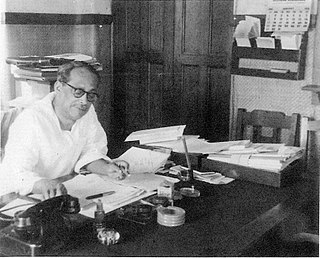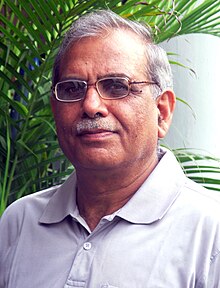Megasthenes was an ancient Greek historian, diplomat, ethnographer and explorer in the Hellenistic period. He described India in his book Indica, which is now lost, but has been partially reconstructed from literary fragments found in later authors that quoted his work. Megasthenes was the first person from the Western world to leave a written description of India.

Sagala, Sakala, or Sangala was a city in ancient India, which was the predecessor of the modern city of Sialkot that is located in what is now Pakistan's northern Punjab province. The city was the capital of the Madra Kingdom and it was razed in 326 BC during the Indian campaign of Alexander the Great. In the 2nd century BC, Sagala was made capital of the Indo-Greek kingdom by Menander I. Menander embraced Buddhism after extensive debating with a Buddhist monk, as recorded in the Buddhist text Milinda Panha. Sagala became a major centre for Buddhism under his reign, and prospered as a major trading centre.

The word Yona in Pali and the Prakrits, and the analogue Yavana in Sanskrit and Yavanar in Tamil, were words used in Ancient India to designate Greek speakers. "Yona" and "Yavana" are transliterations of the Greek word for "Ionians", who were probably the first Greeks to be known in India.

The Indo-Greek Kingdom, or Graeco-Indian Kingdom, also known historically as the Yavana Kingdom (Yavanarajya), was a Hellenistic-era Greek kingdom covering various parts of Afghanistan and the northwestern regions of the Indian subcontinent. This kingdom was in existence from ca. 200 BC to the beginning of the common era.
Ahmad Hassan Dani FRAS, SI, HI was a Pakistani archaeologist, historian, and linguist. He was among the foremost authorities on Central Asian and South Asian archaeology and history. He introduced archaeology as a discipline in higher education in Pakistan and Bangladesh. Throughout his career, Dani held various academic positions and international fellowships, apart from conducting archaeological excavations and research. He is particularly known for archaeological work on pre-Indus civilization and Gandhara sites in Northern Pakistan.

Sibyrtius was a Greek officer from Crete in the service of Alexander the Great, who was the satrap of Arachosia and Gedrosia shortly after the death of Alexander until about 303 BC.

Gangaridai is a term used by the ancient Greco-Roman writers to describe a people or a geographical region of the ancient Indian subcontinent. Some of these writers state that Alexander the Great withdrew from the Indian subcontinent because of the strong war elephant force of the Gangaridai.

Govind Chandra Pande was a well-known Indian scholar, philosopher and historian of the Vedic and the Buddhist periods. He served as professor of ancient history and vice-chancellor at Jaipur and Allahabad universities. He was also the chairman of the Indian Institute of Advanced Study, Simla for several years, the Chairman of Allahabad Museum Society and the Chairman of Central Tibetan Society, Sarnath Varanasi.

Raja Rajendralal Mitra was among the first Indian cultural researchers and historians writing in English. A polymath and the first Indian president of the Asiatic Society of Bengal, he was a pioneering figure in the Bengali Renaissance. Mitra belonged to a respected family of Bengal writers. After studying by himself, he was hired in 1846 as a librarian in the Asiatic Society of Bengal, for which he then worked throughout his life as second secretary, vice president, and finally the first native president in 1885. Mitra published a number of Sanskrit and English texts in the Bibliotheca Indica series, as well as major scholarly works including The antiquities of Orissa, Bodh Gaya (1878), Indo-Aryans and more.
Dineshchandra Sircar (1907–1985), also known as D. C. Sircar or D. C. Sarkar, was an epigraphist, historian, numismatist and folklorist, known particularly in India and Bangladesh for his work deciphering inscriptions. He was the Chief Epigraphist of the Archaeological Survey of India (1949–1962), Carmichael Professor of Ancient Indian History and Culture at the University of Calcutta (1962–1972) and the General President of the Indian History Congress. In 1972, Sircar was awarded the Sir William Jones Memorial Plaque.

Eliot Deutsch was a philosopher, teacher, and writer. He made important contributions to the understanding and appreciation of Eastern philosophies in the West through his many works on comparative philosophy and aesthetics. He was a Professor Emeritus of Philosophy at the University of Hawaii.
The skōlex, in ancient Greek writings, was a supposed giant, white, carnivorous worm with a large pair of teeth that lived in the Indus River.

Satish Chandra was an Indian historian whose main area of specialisation was medieval Indian history.
Miroslav Marcovich was a Serbian-American philologist and university professor.

Prabodh Chandra Bagchi or P. C. Bagchi was one of the most notable Sino -Indologists of the 20th century. He was the third Upacharya (Vice-Chancellor) of Visva-Bharati University.
Sachchidanand Sahai is an Indian epigraphist, writer and the scientific advisor to the Government of Cambodia for restoration of Angkor Wat and the Temple of Preah Vihear, known for his knowledge on Khmer civilization. He was honored by the Government of India, in 2012, with the fourth highest Indian civilian award of Padma Shri.

Harsh Kumar Gupta is an Indian earth scientist and seismologist, known for his pioneering work on estimation of reservoir-induced earthquakes. He is a former vice chancellor of the Cochin University of Science and Technology (CUSAT) and a Raja Ramanna Fellow at the National Geophysical Research Institute (NGRI), Hyderabad. A recipient of the 1983 Shanti Swarup Bhatnagar Prize for Science and Technology, the highest Indian award in the science and technology category, and the 2008 Waldo E. Smith Award, Gupta was awarded the fourth highest Indian civilian honour of the Padma Shri in 2006.

Rajpal Singh Sirohi is an Indian optics physicist, academic administrator, educator, and researcher in optical metrology. He is the former Director of IIT Delhi and Vice Chancellor of several universities. He is the Fellow of INAE, NASI, OSA, SPIE, OSI and ISoI. He has received numerous awards including Gabor Award of SPIE, Galileo Award of ICO. He is also the recipient of Padma Shri by Govt. of India. He is the author of about 430 papers and several books.
Angelos Chaniotis is a Greek historian and Classics scholar, known for original and wide-ranging research in the cultural, religious, legal and economic history of the Hellenistic period and the Roman East. His research interests also include the history of Crete and Greek epigraphy. Chaniotis is a Professor in the School of Historical Studies at the Institute for Advanced Study in Princeton.
Ram Harsh Singh is an Indian practitioner of the Ayurveda system of alternative medicine and the founder vice chancellor of Dr. Sarvepalli Radhakrishnan Rajasthan Ayurved University. An Emeritus Professor of Banaras Hindu University and a National Professor of the Ministry of AYUSH of the Government of India, he was conferred with the fourth highest civilian honour of Padma Shri, in 2016.











